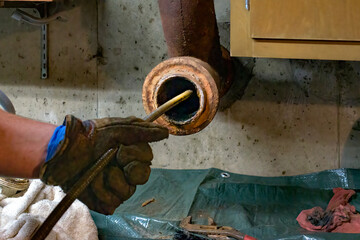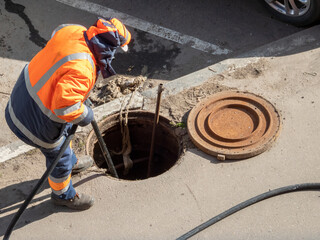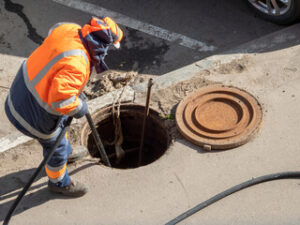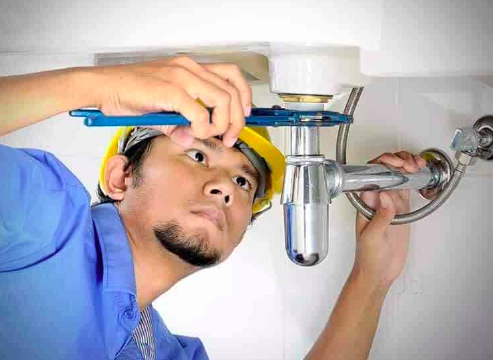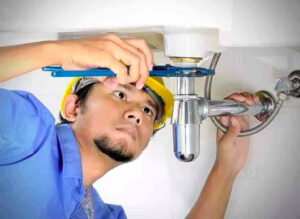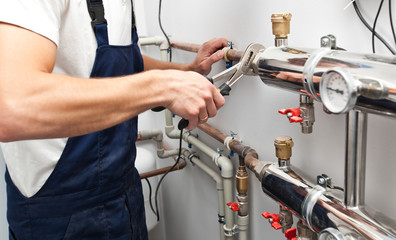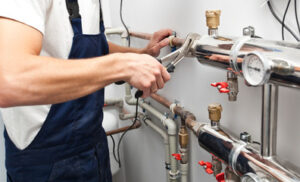Drain Cleaning Aurora, CO is a necessary task that should be performed often to keep your pipes in tip-top shape. Foul odors coming from your home’s drains are the telltale sign of a serious clog or sewage backup.
There are many DIY drain cleaning tricks that you can try, and they are much safer than chemical cleaners. One of the best is to pour half a cup of baking soda followed by half a cup of vinegar down your drain opening.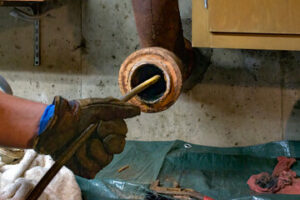
1. Boiling Water
Boiling water can be an effective drain cleaner for certain types of clogs. The hot water can help dissolve substances like soap residue and grease that are causing the blockage. However, it’s important to remember that different pipes react differently to extreme temperatures. For example, PVC pipes can soften and melt when exposed to boiling water. So, it’s essential to use boiling water sparingly and to only pour it down a drain when you know it’s safe to do so.
Alternatively, you can combine boiling water with natural cleaning agents such as dish soap and baking soda to create more powerful drain cleaning solutions. For example, squirting a little bit of grease-fighting dish soap into the drain before you pour in the boiling water can help break down any greasy buildup and make it easier to flush away.
Another option is to pour half a cup of baking soda down the drain followed by an equal amount of vinegar. The fizzing action caused by the reaction between the acidic vinegar and alkaline baking soda can often dislodge clogs. While this method takes a little longer than store-bought chemical cleaners, it’s also safer for your pipes and better for the environment.
For more stubborn clogs, you can try using a homemade chemical drain cleaner. However, it’s important to note that these cleaners can be dangerous and may damage your pipes if they aren’t used properly. If you’re unsure which product to choose, consult with a professional plumber.
For more information on DIY drain cleaning, check out this blog post. And don’t forget — always follow the directions on any drain cleaner you choose, as some are designed to only work on specific kinds of clogs. If you’re dealing with a persistently clogged drain, it might be time to call in the professionals. After all, nobody wants to deal with a backed-up sewer line! A professional can determine the cause of your clog and provide you with a drain cleaning solution that’s right for your pipes. Contact us today to schedule a service appointment.
2. Dish Soap
The most common cause of clogged drains is soap scum build-up. This build-up can block the flow of water and cause a stinky mess. Thankfully, the same dish soap you use to clean your dishes can be used to break up and wash away the gunk that causes clogs. To use this simple method, simply pour a few squirts of dish soap into the drain, then flush with hot water. This is a great way to avoid the expensive and messy chemicals that are often used with chemical drain cleaners.
Aside from a few exceptions, most dish soaps are safe to use on pipes because they aren’t corrosive. This means that you can safely use this method to remove the build-up on a regular basis. This will prevent clogs from becoming worse and will help keep your drains smelling fresh.
Another great reason to use this method is because it’s inexpensive and doesn’t require any special equipment. However, if your clog is severe, it may be time to call a plumber.
In addition to unclogging drains, this technique also works well for unblocking showers and toilets. It’s also a good choice for removing odors from garbage disposals and drains.
Dish soap is one of the most versatile cleaning products in your home. It can be used for stain removal on laundry, eliminating fruit flies in the kitchen, and more. It can even be used to unclog drains, as it can help to break up and dissolve grease that has accumulated in the pipe.
When it comes to drains, this can be especially useful for preventing soap scum build-up. If you’re concerned about the amount of soap scum you’re washing down your drains, try switching to a liquid detergent that is less likely to create a thick foam.
We recommend using a natural soap such as ECOS, Seventh Generation or Thrive Market Dish Soap. These options are both non-toxic and biodegradable, which is great for your pipes. We love the ECOS soap’s light, natural scent and the fact that it’s also hypoallergenic and free of dyes. We also like the Thrive Market option because it’s both environmentally friendly and competitively priced.
3. Baking Soda & Vinegar
Baking soda (sodium bicarbonate) is a common kitchen staple that has many uses, including cleaning drains. When combined with vinegar, it produces a chemical reaction that can dissolve blockages and remove odors. This method is a safe and inexpensive alternative to more potent chemical drain cleaners, and it can be used regularly to prevent clogs from occurring.
Before using baking soda and vinegar to clean a drain, it’s important to inspect the drain for any visible obstructions. This can be done by removing the drain cover or taking out the strainer and drain plug. Once any obstructions have been removed, the next step is to pour one cup of baking soda into the clogged drain. Cover the drain with a cloth or stopper and allow the mixture to fizz for about an hour. Once the time has passed, flush the drain with hot water to wash away the baking soda-vinegar mixture and any remaining clogs.
Vinegar is an acid that can dissolve some types of blockages, including grease, hair, and mineral deposits. When combined with baking soda, it creates a chemical reaction that breaks down fats and other substances in the drain and surrounding pipes. This mixture can also help to remove lingering odors from the drain and prevent clogs from forming.
Another advantage of using this cleaning method is that it is cheap and easy to do. The ingredients can be found at most grocery stores, and it is a safer alternative to commercial chemical drain cleaners. It is also environmentally friendly, since the only byproducts are water and carbon dioxide. However, this method can be messy, and it may not be effective on severe clogs.
If the baking soda and vinegar method does not completely clear a drain, it’s recommended to try another natural cleaning mixture. Lemon juice and cream of tartar can be used to create a paste that is applied directly to the drain, then left to sit for a few minutes before being flushed with boiling water. Alternatively, distilled white vinegar and borax can be used to form an abrasive cleaning mixture that is poured down the drain and then flushed with boiling water.
4. Chemical Cleaners
Chemical drain cleaners are designed to dissolve grease, hair and soap scum that have built up in your home’s drain pipes. They are normally sold in liquid, gel or powder form and work by creating a chemical reaction with the clog to break it down into smaller pieces that can be flushed away with water. Most chemical drain cleaners contain strong acids, bases or oxidizers that travel down the drain and donate or receive electrons from the clog, thus breaking it down.
Although these cleaners may get the job done, they are not without their problems. Many of them are toxic to people and pets and can contaminate the environment. They also can cause severe damage to your pipes if used incorrectly or on old, worn out pipes. They are also not a good idea for septic systems because they kill the bacteria that break down organic material in the tank.
Most chemical drain cleaners require that you follow specific usage instructions, which are often found on the package or on the bottle. They also usually require that you use safety equipment like goggles, face masks and rubber gloves. This is because they can irritate your eyes, nose and skin as well as burn your skin and mucous membranes. They also release strong fumes that can aggravate respiratory issues if inhaled for extended periods of time.
In addition, the chemicals in most of these cleaners can actually be more harmful than the clog itself. They can eat through the metal in your pipes, leaving them weak or corroded. They can also erode enamel surfaces, such as those of your bathtub or sink.
There are several ways that you can clean your drains without using harsh chemicals. One way is to pour very hot water down the drain followed by cold water to start a chemical reaction that can help dissolve and loosen clogs. Another is to try a baking soda and vinegar solution. This is a non-toxic and natural method that requires no special ingredients or tools. The best part is that it only takes a few minutes and can be done right in your home.

